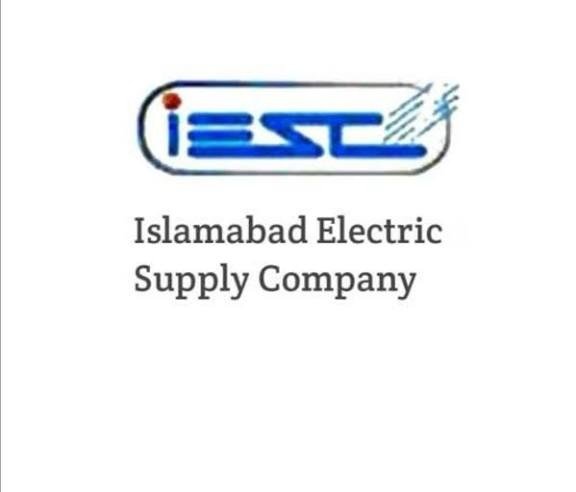Islamabad – While Pakistan negotiates tirelessly with the International Monetary Fund (IMF) for bailout packages worth a few billion dollars, a parallel economy of corruption worth trillions of rupees thrives unchecked inside the country’s power sector. At the center of the latest scandal is the Islamabad Electric Supply Company (IESCO), accused of facilitating illegal housing societies by installing condemned transformers, issuing unauthorized connections, and enabling massive land schemes to flourish. Some of Islamabad’s most prominent but unauthorized housing societies, including Ghouri Town, Gulberg Greens, Bani Gala, and Royal Housing, allegedly received direct support from IESCO officials who supplied transformers and electricity connections in clear violation of the law. These societies, declared illegal by regulators for flouting zoning and planning rules, continued to expand thanks to clandestine electricity supply agreements.
Whistleblower complaints to the Federal Investigation Agency (FIA) reveal that officials within IESCO not only sanctioned these connections but also personally profited, amassing fortunes while the state exchequer incurred staggering losses. Transformers that had been condemned as faulty were reinstalled in these societies, creating lucrative channels of kickbacks between utility officers and housing developers. These revelations are not new, they form part of multiple FIA inquiries, including Inquiry Nos. 41/23, 41/24, 220/24, and 326/24, all of which have languished in bureaucratic cold storage with little visible progress.
What makes this case especially troubling is not just the scale of corruption, but the repeated failure of accountability. Since 2021, multiple FIA inquiries into IESCO’s activities have either been merged, delayed, or abruptly closed. One case began on June 29, 2021, when a young Pakistani complainant filed detailed evidence with the FIA. Instead of proceeding, the case was folded into another inquiry and soon after terminated without explanation. Months later, after persistent pressure, the matter was reopened, only to be merged into yet another investigation. Each time an inquiry gained momentum, officers under scrutiny were shielded by promotions, transfers, or bureaucratic maneuvers. Shehzad Ahmed Jaleel, then XEN of Operations Division I, Islamabad, was issued notices for his alleged role in facilitating illegal connections and bribe-taking. Instead of suspension, he was promoted to Superintendent Engineer at IESCO Cantt Circle Rawalpindi and is widely tipped as the next Chief Engineer. Even when FIA summoned him in August 2025, the inquiry officer handling his case was abruptly transferred, and once again the investigation stalled.
Allegations against Jaleel go beyond negligence. Insiders claim he was previously caught accepting bribes but, instead of facing trial, was reinstated and promoted. According to regulations, any officer under inquiry cannot be promoted until the matter is resolved, yet his career illustrates how accountability laws are routinely undermined in Pakistan. Meanwhile, IESCO’s silence on the scandal is deafening. When approached for comment on the installation of condemned transformers and the provision of power to illegal housing societies, company officials declined to answer. FIA representatives, for their part, denied shelving cases but also refused to provide clear details on how many notices have been issued or how many related inquiries remain pending.
This case sits at the intersection of two of Pakistan’s most corruption-prone sectors: real estate and energy. Housing societies, many operating outside legal frameworks, are among the most profitable ventures in the country, backed by political elites, land developers, and state officials. Without electricity, these projects cannot attract buyers. That dependency has turned electricity supply companies like IESCO into powerful gatekeepers, whose officers can make or break multi-billion-rupee developments. The consequences go beyond lost revenue. Unauthorized housing schemes strain urban infrastructure, undermine environmental planning, and trap ordinary citizens who purchase plots in projects that may later be declared illegal. In effect, a parallel housing economy has emerged, one built not on law, but on corruption and complicity.
The scandal underscores a broader crisis of governance in Pakistan. At a time when the country pleads with the IMF for bailouts of a few billion dollars, unchecked corruption drains resources worth trillions from the national economy. Whistleblowers, often young professionals and citizens, risk their safety to expose these crimes, only to watch inquiries vanish in bureaucratic quicksand. Civil society groups warn that without systemic reform, Pakistan’s debt crisis and corruption crisis will continue to reinforce each other. “We beg the IMF for dollars while our own officials enable theft worth hundreds of times more,” said one Islamabad-based activist. “This is not mismanagement, it is state capture.”
For now, IESCO officers implicated in the scandal remain secure in their positions, some climbing the ranks despite the allegations. FIA insists “all legal requirements will be fulfilled,” but the agency’s vague responses raise doubts about its will to act. With political patronage, bureaucratic inertia, and entrenched interests shielding those accused, accountability remains elusive. Until Pakistan confronts the nexus of housing, power, and corruption, scandals like IESCO’s transformer deals will remain symptoms of a deeper malaise: a system where law is selectively enforced, and billions are siphoned from public wealth while ordinary citizens bear the cost through higher tariffs, power shortages, and economic insecurity.

